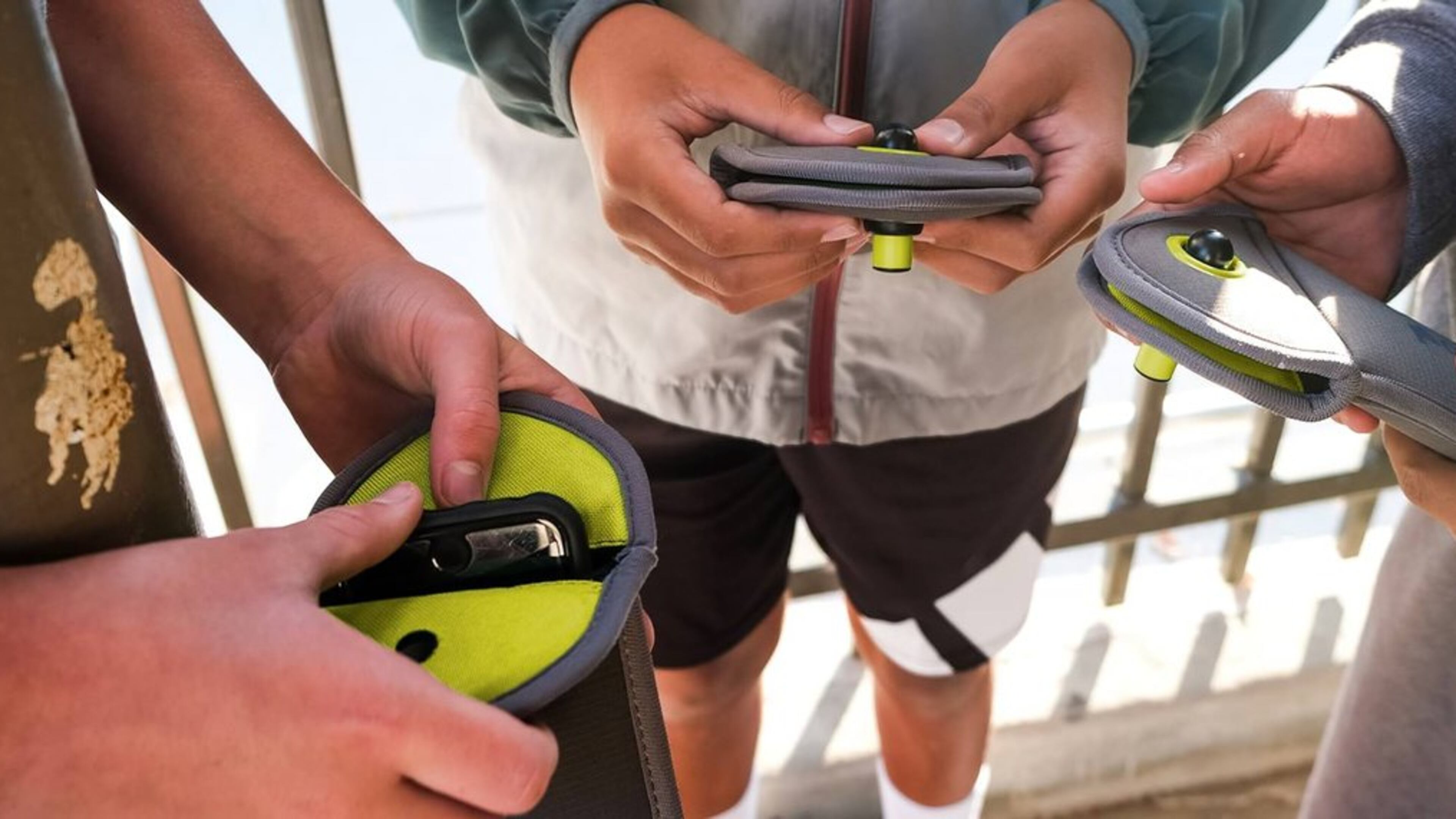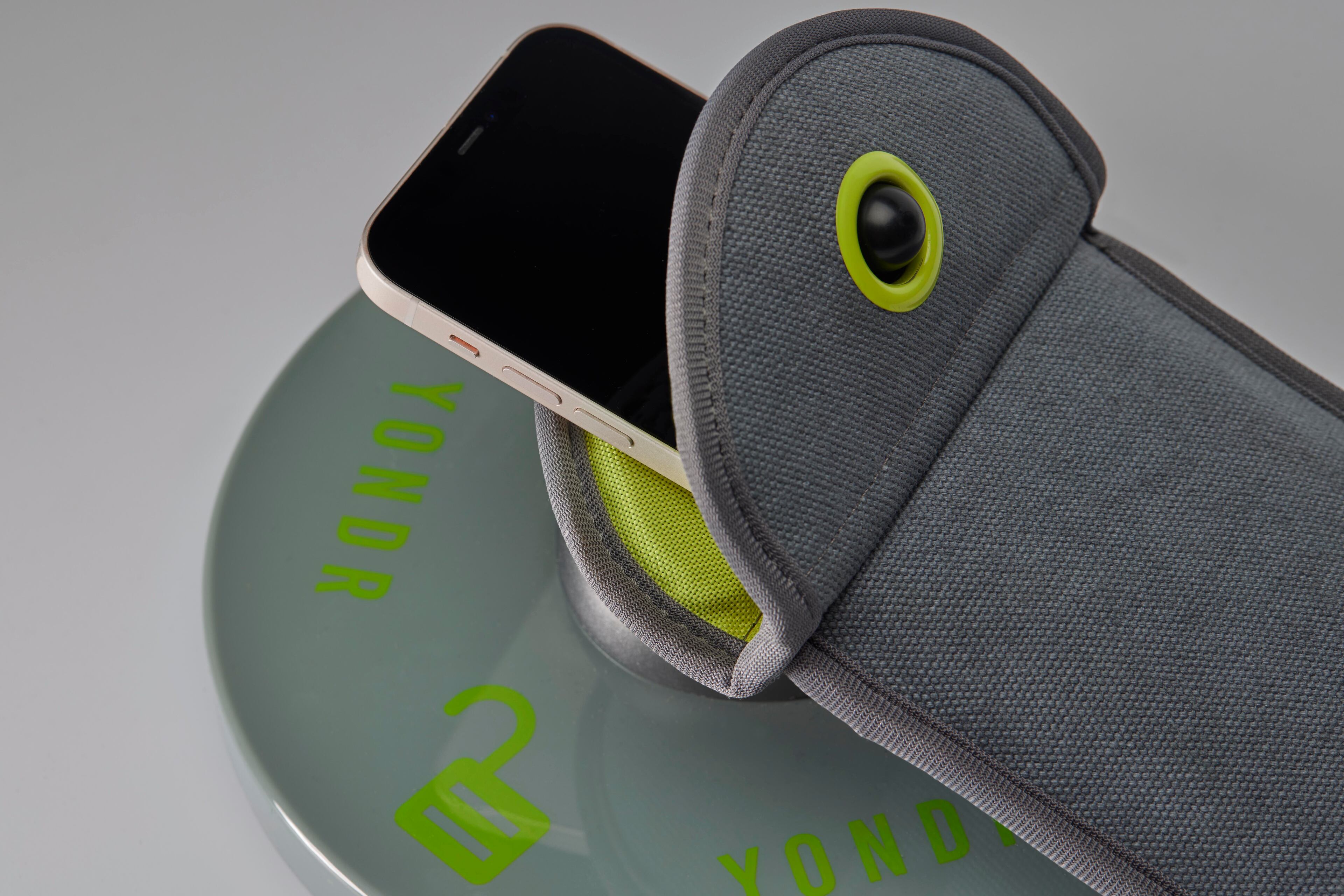DeKalb the latest school system to try restricting student cellphone use

Ten DeKalb schools this year will try out a new approach to keep students from being distracted during class: cellphone pouches.
The school board on Monday approved the $400,000 purchase of roughly 15,000 pouches from the company Yondr. Schools in Atlanta, Marietta and Liberty County are planning to use the same pouches this year.
Students will be expected to turn their phones off and place them in the pouches when they arrive at school, Darnell T. Logan, the district’s director of student relations, said Monday. They will keep the pouches with them, but the pouches won’t be unlocked until the end of the day or by an administrator. Each school will have at least 20 base stations to unlock the devices, with larger schools having more.

Reducing cellphone use is expected to improve students’ academic performance, behavior and mental health. In a study of 18 classrooms across nine schools (a mix of middle and high schools), DeKalb students received an average of 13 notifications every 30 minutes. In one high school class, students tallied almost 900 notifications in 30 minutes.
“It is a huge distraction and it disrupts the flow of learning,” Logan said.
Board members supported the effort, but urged district officials to spend time educating parents about the necessity.
“I think the issue is going to be parents,” said board member Allyson Gevertz. “I think parents want to be able to do what’s right for their kids, but it is hard when the culture is so accepting of parents having 24-7 access to their kids on their phones.”
Board member Whitney McGinniss said she expects students to use their laptops or smartwatches to continue to access social media during the school day.
“I think the cellphone is absolutely an issue,” she said, “but it may be a situation where we lock up the cellphone and we see that the problem just spreads to the other technology students still have access to.”
The five middle schools that will test the pouches are Henderson, Lithonia, Salem, Sequoyah and Tucker. The five high schools that will test the pouches are Cross Keys, Lakeside, Lithonia, Martin Luther King Jr. and Tucker.
Students who have medical needs or individualized education plans that require the use of a cellphone will keep their phones in pouches that don’t lock, so they can access the phones during the day.
Three additional schools — Chapel Hill Middle, Druid Hills Middle and Miller Grove Middle — will try out a different method. Cellphone lockers will be placed in each classroom for students to deposit their phones during class time. They will have access to their phones during transitions and lunches, but will be expected not to use them.
DeKalb’s policies already prohibit the use of cellphones during the school day, but the policy is often difficult to enforce. There was no discussion of penalties during Monday’s meeting.
Superintendent Devon Horton said recently the new effort is critical for the district to help students “disconnect to reconnect.” He expects there to be a big learning curve in the first month or two, but for students and parents to accept the use of the pouches after that.
“We want to do what’s right for kids, and this is definitely a step in the right direction,” he said Monday.



